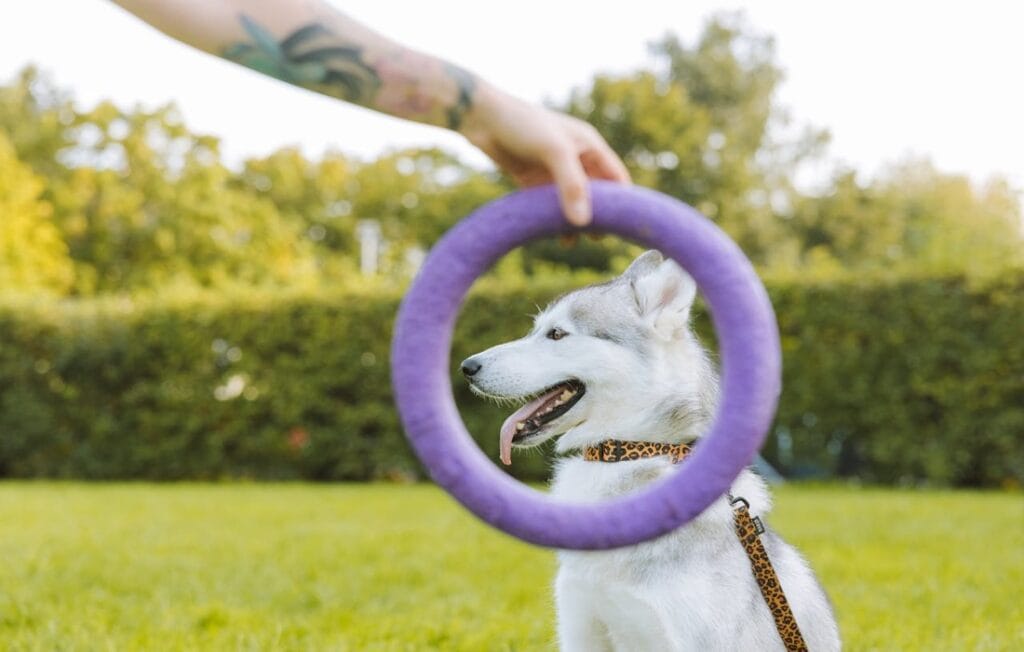Training your dog can be one of the most rewarding experiences of being a pet parent. But some dogs are easier to train than others. If you’re looking for a dog that learns quickly and listens well, it’s helpful to know which breeds tend to be easier to train.
In this guide, we’ll explore the easiest dogs to train. You’ll learn which breeds are the most eager to please, how to make training fun for both you and your dog, and tips to help your dog succeed.
What Makes a Dog Easy to Train?
Some dogs are naturally better at learning because of certain traits. Let’s take a look at the factors that make a dog easier to train:
1. Intelligence
Intelligent dogs tend to learn commands more quickly. They understand tasks faster and require fewer repetitions. Breeds like Border Collies and Poodles are well-known for their high intelligence.
2. Desire to Please
Dogs that love to please their owners are easier to train. These breeds are eager to do what you ask. Golden Retrievers and Labrador Retrievers are good examples of dogs that are naturally motivated to make their owners happy.
3. Focus and Attention
A dog that can focus on tasks for long periods of time will likely be easier to train. Breeds like German Shepherds are great at paying attention and staying focused during training sessions.
4. Consistency
All dogs, even the smartest ones, need consistency. If you’re patient and stick to a routine, your dog will catch on. Consistent training helps your dog understand what is expected of them.
10 Easiest Dog Breeds to Train
Now, let’s look at the top 10 dog breeds that are known for being easy to train. These dogs are intelligent, eager to learn, and motivated to please.
1. Border Collie
Trainability: 10/10
Temperament: Smart, energetic, focused
Border Collies are widely considered the smartest dog breed. They learn commands quickly and love having a job to do. Their natural herding instinct makes them fast learners.
Training Tips: Keep training sessions short and fun. Border Collies love challenges, so keep them engaged with new tasks. Use positive reinforcement like treats or praise to reward them.
2. Poodle
Trainability: 9/10
Temperament: Friendly, intelligent, playful
Poodles are known for their intelligence and adaptability. They are quick learners and enjoy tasks that challenge their minds. Whether you have a Standard, Miniature, or Toy Poodle, they all respond well to training.
Training Tips: Use positive reinforcement and keep training varied to keep your Poodle interested. They love to learn, so make sure to keep them engaged with new tricks.
3. Golden Retriever
Trainability: 9/10
Temperament: Friendly, eager to please, gentle
Golden Retrievers are one of the most popular family dogs—and they are easy to train too. Their friendly nature and eagerness to please make them quick learners. They excel at obedience training and are often used as service dogs.
Training Tips: Golden Retrievers respond well to praise and treats. Start training early to build good habits. Keep sessions short and positive to maintain their attention.
4. Labrador Retriever
Trainability: 9/10
Temperament: Outgoing, energetic, loyal
Labradors are known for their friendly personality and intelligence. They love people and enjoy being trained. Labs are often used in service and therapy work due to their ability to learn quickly.
Training Tips: Use reward-based training to keep your Labrador motivated. They need both physical and mental exercise, so make training fun with plenty of play.
5. German Shepherd
Trainability: 9/10
Temperament: Loyal, intelligent, protective
German Shepherds are highly intelligent and protective. They learn quickly and are often used in police and military roles because of their ability to follow complex commands. With the right training, they make excellent family pets.
Training Tips: German Shepherds thrive on consistency and structure. Be firm but kind in your training. Give them plenty of mental stimulation to keep them engaged.
6. Doberman Pinscher
Trainability: 8/10
Temperament: Alert, confident, energetic
Dobermans are confident and intelligent dogs. While they can be independent at times, they are still highly trainable. They are loyal to their families and quick to learn commands.
Training Tips: Be consistent and firm in your training. Dobermans need mental stimulation, so include challenging tasks to keep them engaged. Positive reinforcement works well for this breed.
7. Shetland Sheepdog
Trainability: 8/10
Temperament: Friendly, intelligent, alert
Shetland Sheepdogs, or Shelties, are known for their intelligence and eagerness to learn. They excel at obedience training and can quickly pick up new commands. Shelties are also very loyal and love spending time with their families.
Training Tips: Use positive reinforcement and keep training sessions fun. Shelties respond well to praise, so be sure to reward them when they do well.
8. Australian Shepherd
Trainability: 8/10
Temperament: Energetic, intelligent, loyal
Australian Shepherds are quick learners with a strong work ethic. They thrive when given tasks to do and are often used as herding dogs. They love mental challenges and can pick up new commands quickly.
Training Tips: Provide plenty of physical and mental exercise. Use positive reinforcement to keep your Australian Shepherd motivated. Training can be combined with play to keep things fun.
9. Belgian Malinois
Trainability: 8/10
Temperament: Confident, intelligent, energetic
Belgian Malinois are similar to German Shepherds in terms of intelligence and trainability. They are often used in military and police work because they are quick learners and excel at following commands.
Training Tips: Belgian Malinois need both mental and physical stimulation. Incorporate challenging tasks and exercises into your training sessions to keep them engaged.
10. Papillon
Trainability: 8/10
Temperament: Friendly, intelligent, alert
Papillons may be small, but they are highly intelligent and eager to learn. They respond well to training and can quickly pick up commands. Their friendly nature makes them great companions.
Training Tips: Use plenty of praise and rewards to encourage good behavior. Keep training sessions short and fun to maintain their attention.
Tips for Successful Dog Training


No matter what breed you choose, whether it’s a playful pup or a more reserved companion, here are some essential training tips that will help your dog succeed and thrive in any environment, ensuring a strong bond between you and your furry friend.
1. Be Consistent
Dogs learn best when training is consistent. Use the same commands and signals every time. This helps your dog understand what you expect and makes learning easier.
2. Use Positive Reinforcement
Reward your dog when they follow a command. Positive reinforcement, like treats or praise, will motivate your dog to keep learning. The more rewards you give for good behavior, the more your dog will want to please you.
3. Be Patient
Training takes time, and every dog learns at their own pace. Be patient and avoid getting frustrated if your dog doesn’t pick things up right away. Keep sessions short and positive, and your dog will improve over time.
4. Socialize Your Dog
Socialization is an important part of training. Expose your dog to different people, environments, and other animals early on to help them become well-adjusted and confident.
5. Give Mental and Physical Exercise
Many dogs, especially highly trainable breeds, need both mental and physical exercise. Incorporate play, walks, and training into your dog’s routine to keep them happy and engaged.
Final Thoughts
Training a dog is a rewarding experience, and some breeds make it easier than others. Border Collies, Golden Retrievers, and Poodles are all known for their intelligence and eagerness to please. But with patience and consistency, almost any dog can learn new commands and become a well-behaved member of the family.
No matter which breed you choose, the key is to build a strong bond with your dog and provide plenty of opportunities for training and exercise. With the right approach, your dog will quickly become an obedient, loving companion.













